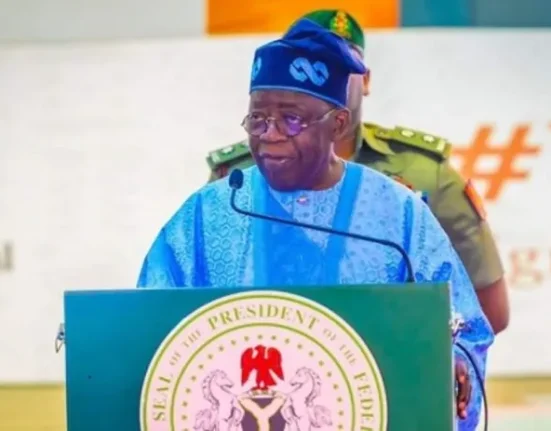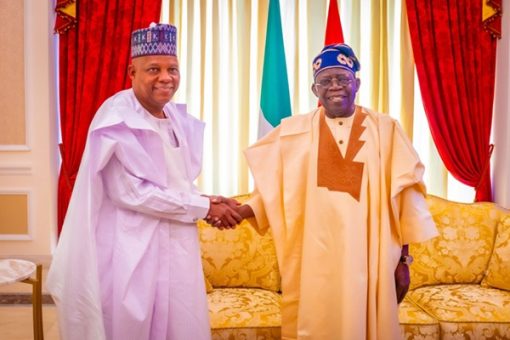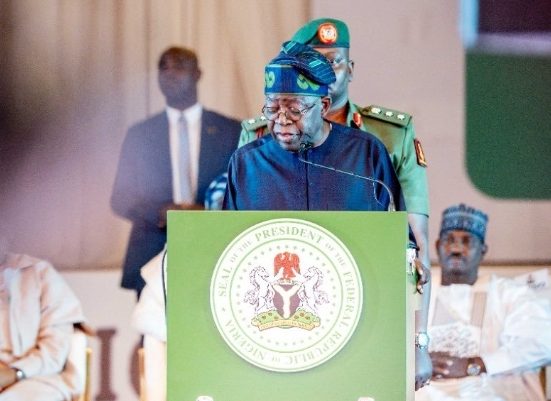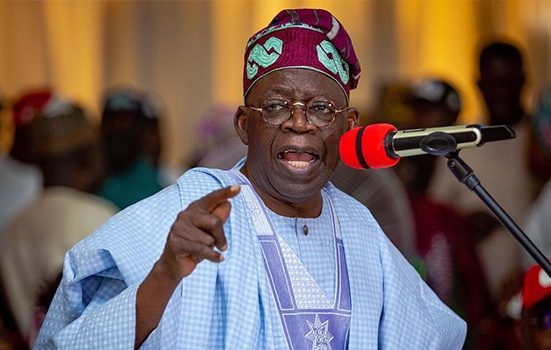President Bola Ahmed Tinubu has reaffirmed that the decision to remove fuel subsidy on the very day of his inauguration was a painful but necessary action aimed at steering the Nigerian economy away from the brink of collapse. The president, through the Minister of Information and National Orientation, Mohammed Idris Malagi, emphasized the rationale behind the bold economic reform during the quarterly meeting of the Progressives Governors’ Forum held in Minna, Niger State.
Addressing Information Commissioners from states governed by the All Progressives Congress (APC), Malagi stated that President Tinubu’s administration is driven by a deep sense of responsibility and unwavering commitment to reviving the economy through strategic policy reforms, even if such measures come with temporary discomfort for Nigerians. He reiterated that the fuel subsidy regime, which had become synonymous with systemic corruption and financial leakage, had to be dismantled to make room for sustainable national growth.
“One of the boldest and most consequential decisions of this administration, which is the removal of the fuel subsidy, was a painful but necessary reform. Beyond saving the economy from fiscal collapse, this decision has significantly blocked areas of leakage and waste in our economy,” Malagi stated.
The Minister noted that the funds saved from subsidy removal are now being redirected to critical infrastructure projects that would have lasting impacts across Nigeria. These include the Lagos-Calabar Coastal Superhighway, the Sokoto-Badagry Super Highway, the Calabar-Abuja Super Highway, the Kaduna-Kano Standard Gauge Railway, and the ongoing reconstruction of the Abuja-Kaduna-Kano Expressway.
Malagi tasked state Information Commissioners to return to their respective states equipped with accurate data and compelling narratives that will enable citizens to not only understand government programmes under the Renewed Hope Agenda but also access the benefits. He stressed that the federal government is implementing reforms with discipline, prudence, and a clear focus on national interest, particularly the economic welfare of the Nigerian people.
He said, “It is our duty as information managers to ensure that citizens across all states are aware of these reforms, understand them, and are empowered to benefit from them. That is the importance of this gathering. As Commissioners for Information, you are the frontline voices of the government in your states. Go back with renewed energy and arm yourselves with facts, stories, and strategies that will help mobilize the people to embrace the vision of Renewed Hope.”
According to him, the conference underscores a shared responsibility across all levels of government to communicate clearly the objectives and successes of Tinubu’s administration. He added that under the Renewed Hope Agenda, every Ministry, Department, and Agency is expected to execute their mandates with transparency and a strong commitment to public service.
Also speaking at the event, the Secretary to the Government of Niger State, Alhaji Abubakar Gawu, who represented Governor Mohammed Umar Bago, commended the unity and performance of APC governors. He declared that in Niger State, the administration was making strides in agricultural development, digital transformation, urban renewal, and youth empowerment through purposeful governance and bold reforms.
In her remarks, the Niger State Commissioner for Information and Strategy, Binta Mamman, described the meeting’s theme—Strategic Communication and Policy Alignment—as timely, stressing the need for a clear sense of purpose in public communication. She maintained that the New Niger Vision being pursued by Governor Bago is communication-driven, placing emphasis on development, transparency, and mobilisation of the public for inclusive governance.
Mamman further noted that the task before Information Managers goes beyond publicity. It includes countering misinformation, fostering constructive dialogue, and aligning public narratives with the progressive values of the APC-led government to ensure national cohesion and sustainable development.
With rising public discourse surrounding subsidy removal and its ripple effects on the economy, the federal government continues to make a case for its policies, assuring Nigerians that the short-term sacrifices will translate into long-term dividends through improved infrastructure, job creation, and a revitalised economy.







